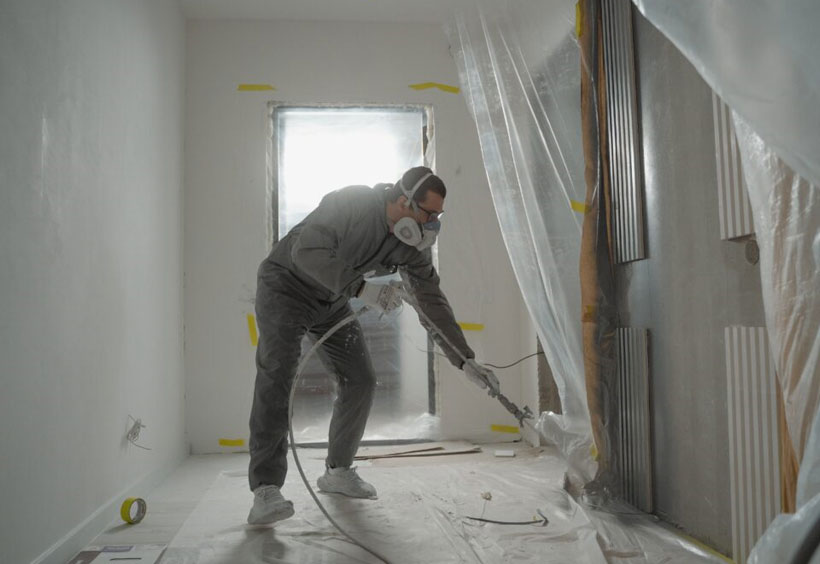How to Start a Painting Business

If you’re the kind of person who has an eye for detail and enjoy working with your hands, then 2024 might be the year for you to turn those passions into profits. The question is: how do you transition from weekend warrior home projects to a thriving enterprise? The answer lies in understanding how to start a painting business. It’s more than just brushes and ladders; it’s about market analysis, branding, and quality assurance. Let’s get to it.
Table of Contents
- Introduction
- Understanding the Painting Market
- Crafting a Business Plan
- Legal Considerations and Formalities
- Investing in Quality Supplies and Tools
- Pricing Your Painting Services
- Building a Brand and Online Presence
- Networking and Partnerships
- Hiring and Training
- Potential Income and Timeframe to Profit
- Benefits of Online Courses
- Top Cities to Launch Your Service
- Pro vs. Con: Diving into the Paint Industry
- Conclusion
Understanding the Painting Market
Before dipping your brush into the entrepreneurial palette, it’s vital to understand the market. There’s a vast difference between occasionally touching up a room for a friend and consistently delivering quality work to paying customers. Analyze local demand, know your competition, and identify the niches you want to serve, be it residential or commercial painting.
Statistic #1: The painting industry has grown by 5% annually for the past five years.
Statistic #2: 60% of companies cater to residential clients, showcasing a dominant market share.
Crafting a Business Plan
Your business plan will serve as your roadmap. It should detail your company’s mission, SWOT analysis, and projected financials. A well-detailed plan can also attract potential investors.
Legal Considerations and Formalities
Ensure you procure the necessary licenses and permits, understand the required insurance, and register your business name. Legalities can seem daunting, but they’re essential for smooth operation.
Investing in Quality Supplies and Tools
The right tools not only make the job easier but also ensure it’s done right. From brushes to ladders and premium paints, invest wisely.
Statistic #3: Businesses that prioritize quality tools and paints see a 40% higher customer retention rate.
Pricing Your Painting Services
Your pricing strategy should factor in labor, materials, and overhead costs. Competitive pricing can attract clients, but never compromise on quality for cost.
Building a Brand and Online Presence
In the digital age, an online presence is paramount. From a logo that stands out to an engaging website and active social media profiles, every touchpoint matters.
Networking and Partnerships
Local trade associations can provide invaluable insights and potential leads. Partnerships with startups like home improvement stores can also yield referrals.
Hiring and Training
Once demand grows, you’ll need a team. Ensure they’re well-trained, safety-compliant, and understand the standards your brand upholds.
Potential Income and Timeframe to Profit
It’s essential to set realistic financial goals and understand the timeframe to achieve them.
Statistic #4: On average, contractors can see a profit margin between 15-27%.
Statistic #5: The majority of startups reach profitability within their first two years.
Benefits of Online Courses
An online painting course can immensely benefit those new to the industry. These courses often cover both technical skills and business insights, giving you an edge over competition and ensuring you deliver top-notch services to clients.
Top Cities to Launch Your Service
- Denver, Colorado: With an ever-growing population and a construction boom, Denver’s housing market remains strong. New homes and businesses are continually sprouting up, and old ones are being renovated, signaling a steady demand for painting services.
- Austin, Texas: As a tech hub and one of the fastest-growing cities in the U.S., Austin has seen a surge in new establishments, residential areas, and renovations. Plus, the city’s creative vibe might open doors for more artistic gigs.
- Nashville, Tennessee: Known for its music and culture, Nashville is also witnessing rapid growth in terms of new businesses and housing. This growth translates to opportunities for painters, especially those who can cater to the city’s unique aesthetic.
- Tampa, Florida: With its favorable climate and an increasing number of retirees choosing it as a destination, Tampa has a rising demand for home renovations and new constructions.
- Portland, Oregon: The city’s growth in terms of population and new ventures, combined with its specific Pacific Northwest aesthetic, can be a ripe market, especially those who understand the city’s unique vibe.
- Raleigh, North Carolina: As part of the Research Triangle (along with Durham and Chapel Hill), Raleigh is witnessing steady growth, particularly in tech sectors, leading to more commercial and residential opportunities.
Pro vs. Con: Diving into the Paint Industry
Pros:
- Steady demand.
- Potentially high-profit margins.
- Flexibility in choosing residential or commercial projects.
Cons:
- Initial overhead costs for quality tools and paints.
- Seasonality can affect demand.
- Requires active marketing, especially in the initial stages.
Conclusion
Understanding how to start a painting business requires dedication, research, and an unwavering commitment to quality. With the industry’s promising prospects, 2024 might just be the perfect year to dive in.









